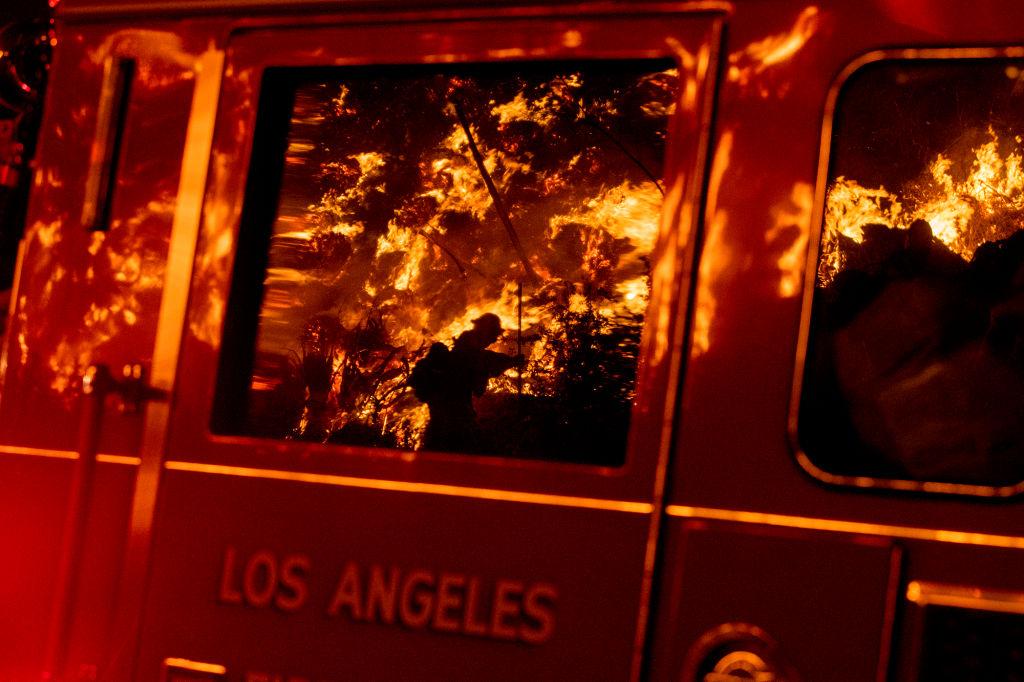
The beat
Victoria Police introduces ‘hostile vehicle’ policy
Victoria Police has provided officers with a set of guidelines outlining their powers and responsibilities in the event of a car attack. The new ‘hostile vehicle’ policy clarifies that officers are required to intervene and use all means necessary to protect pedestrians in situations where a car is being used as a weapon. The state’s Crimes Act will be updated to include the new rules.
Increased surveillance powers for Swedish police
Sweden’s Data Protection Authority has authorised police to use facial-recognition technology to assist with the identification of criminal suspects, noting that it’s more effective at identifying suspects than manual screening. Police will be able to compare facial images taken from surveillance footage with a national database of biometric images.
Chinese police ban unregistered mahjong parlours
Police in Yushan, a small county in southeast China, announced that they were banning mahjong parlours in an effort to curtail illegal gambling and ‘purify social conduct’. Police were met with panic and outrage after they issued a statement that said all mahjong parlours would be closed by 22 October and were quick to clarify that the ban only applied to unlicensed parlours. Several other counties in southeast China have also banned the parlours.
Checkpoint
Syria–Turkey border clash
Syrian and Turkish forces have clashed for the first time since Turkey launched its anti-Kurdish offensive, trading fire near the border town of Ras al-Ain that has killed six Syrian soldiers. Meanwhile, Russia’s defence minister has said that Kurdish fighters have finished pulling out from the Turkey–Syria border, in accordance to a deal between Ankara and Moscow. Turkey had previously vowed to cleanse northeast Syria of Kurdish forces if Russia didn’t fulfil its obligations under the deal, and said it will verify the pullout itself through joint patrols.
US border agents discover migrants in semi-trailer
US Border Patrol agents have found 30 illegal migrants hidden in a truck at an immigration checkpoint on Interstate 19 in Arizona. The incident is the second case of attempted people-smuggling in two weeks after 32 migrants were discovered in a truck on the same highway the week before. This comes as Customs and Border Protection officials released statistics on southwest border migration in 2019, and as construction begins on a new border wall in Texas.
Civilians killed at Pakistan–Afghan border
Afghanistan and Pakistan have engaged in clashes along their disputed border. According to Afghan officials, the fighting broke out when Pakistani forces tried to establish a military installation along the border district of Nari. Three Afghan women were killed and at least three other people were injured in the exchange of fire. Pakistan’s military has said that five civilians and six soldiers in the Chitral district were wounded after Afghan forces fired ‘mortars and heavy machine guns from Nari District’. The hostilities stopped after military-level engagements between the two states.
CT scan
India and Saudi Arabia strengthen bilateral cooperation
India’s Prime Minister Narendra Modi and Saudi Arabia’s King Salman bin Abdulaziz Al-Saud met in Riyadh this week. In a joint statement, the two leaders condemned all forms of terrorism and attacks on state sovereignty. They also agreed to strengthen cooperation on combating terrorist operations, sharing information, and building capacity within their existing bilateral security framework.
Chemical weapons a priority for anti-terror efforts in Morocco
Seven people have been arrested and harmful chemical agents hidden in a cache of weapons have been seized during raids on a terrorist cell likely aligned with Islamic State in Morocco. A Moroccan security spokesperson said that the country’s focus now goes beyond car bombs and suicide vests, after the threat of chemical weapons became a priority in the new anti-terror plan implemented earlier this year.
Trump’s ‘unique response’ to al-Bagdhadi’s death
In a ‘bizarre’ 48-minute address, US President Donald Trump said Islamic State leader Abu Bakr al-Baghdadi was ‘a coward’ and ‘died like a dog’ during a US military operation. A White House official explained that it was important for Trump to ‘mock this guy’ in order to break the spell that Bagdahdi held over his followers. Later that day, Trump, the commander-in-chief, used al-Baghdadi’s death in a fundraising pitch, saying the operation was a great day for America.
First responder
Extreme weather warning sparks renewed fears in South California
The US National Weather Service has issued an ‘extreme red-flag warning’ in response to historically strong winds, reaching close to 130 kilometres per hour, and dry conditions. Since the warning was issued, multiple new wildfires have erupted across Southern California and fire crews are struggling to contain them. As the wildfires spread across the south of the state, Californians have been offered respite in the north, with firefighters finally gaining control and evacuation orders lifted.
Wild poliovirus type 3 has been eradicated
On World Polio Day, wild poliovirus type 3 was declared globally eradicated by the independent Global Commission for the Certification of Poliomyelitis Eradication. The disease hasn’t been detected anywhere in the world since 2012. Of the three stereotypes of wild poliovirus, type 2 was declared eradicated in 2015, with the last case found in India in 1999. Last month, a circulating vaccine-derived poliovirus type 1 was confirmed in environmental samples in the Philippines, which has recorded consistently low immunisation coverage.
Fires kill hundreds of koalas in northern New South Wales
Hundreds of koalas are thought to have died in a bushfire in northern New South Wales, which burned through more than two-thirds of koala habitat in the region. The Koala Hospital in Port Macquarie fears the worst, saying that the expected mortality rate is likely 60%, meaning at least 350 koalas have died in the blaze. The hospital’s president said that koalas are ‘terrible’ at coping with fires and tend to climb to the top of a tree and curl into a ball to attempt to try the flames.